Plasticiet produces terrazzo-like material from recycled plastic
Dutch startup Plasticiet aims to create "something of value" from recycled plastic for use in interior and furniture design.
Based in Rotterdam, the startup was founded by designers Marten van Middelkoop and Joost Dingemans.
Using recycled plastic collected and processed in collaboration with recycling companies across the Netherlands, Plasticiet produces sheet-plastic materials that are similar in appearance to manmade stone composites like terrazzo.
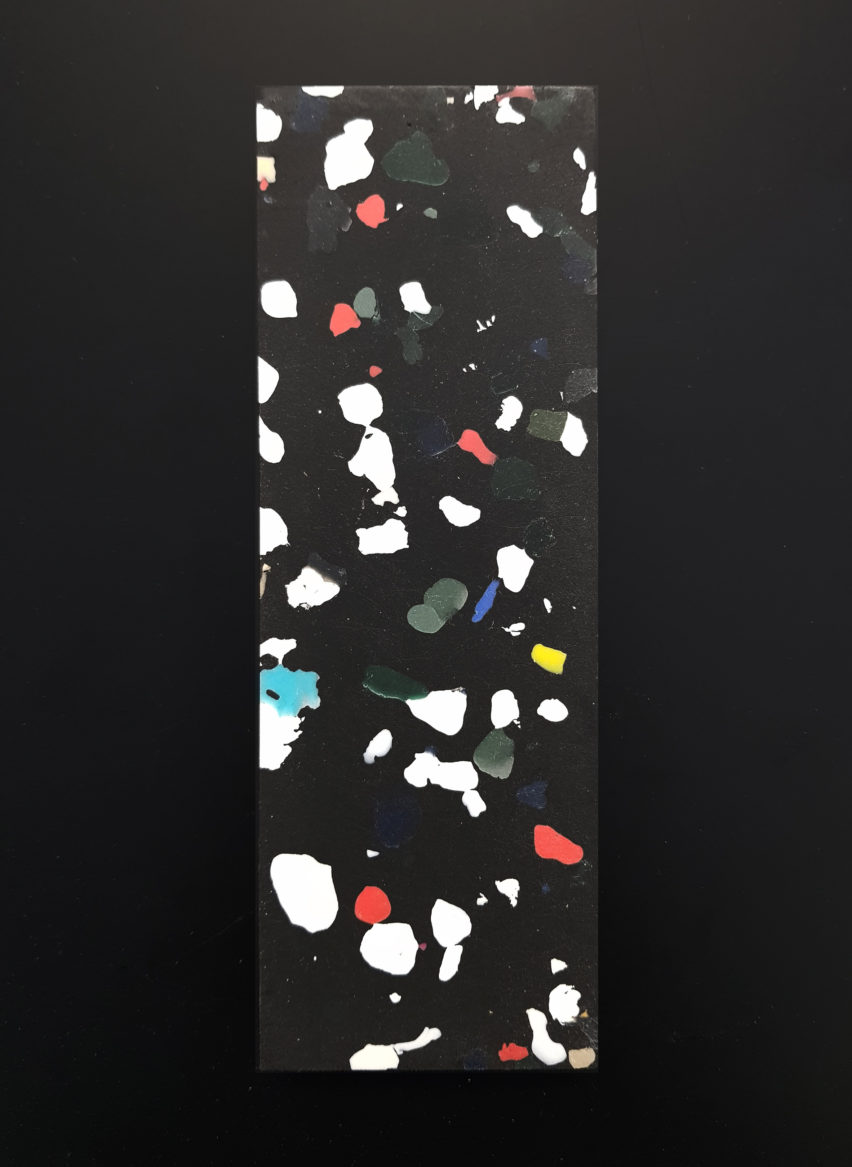
"We want to create something of value that is made to last and is produced from a local waste source," said the duo. "That's where the idea popped up to produce sheets that can be utilised as a building material for all kinds of applications."
The sheets are made up of different-sized pieces of coloured plastic to produce a variety of effects, and can currently be produced in sheets up to 80 centimetres by 80 centimetres, although the designers are working on creating bigger sizes.
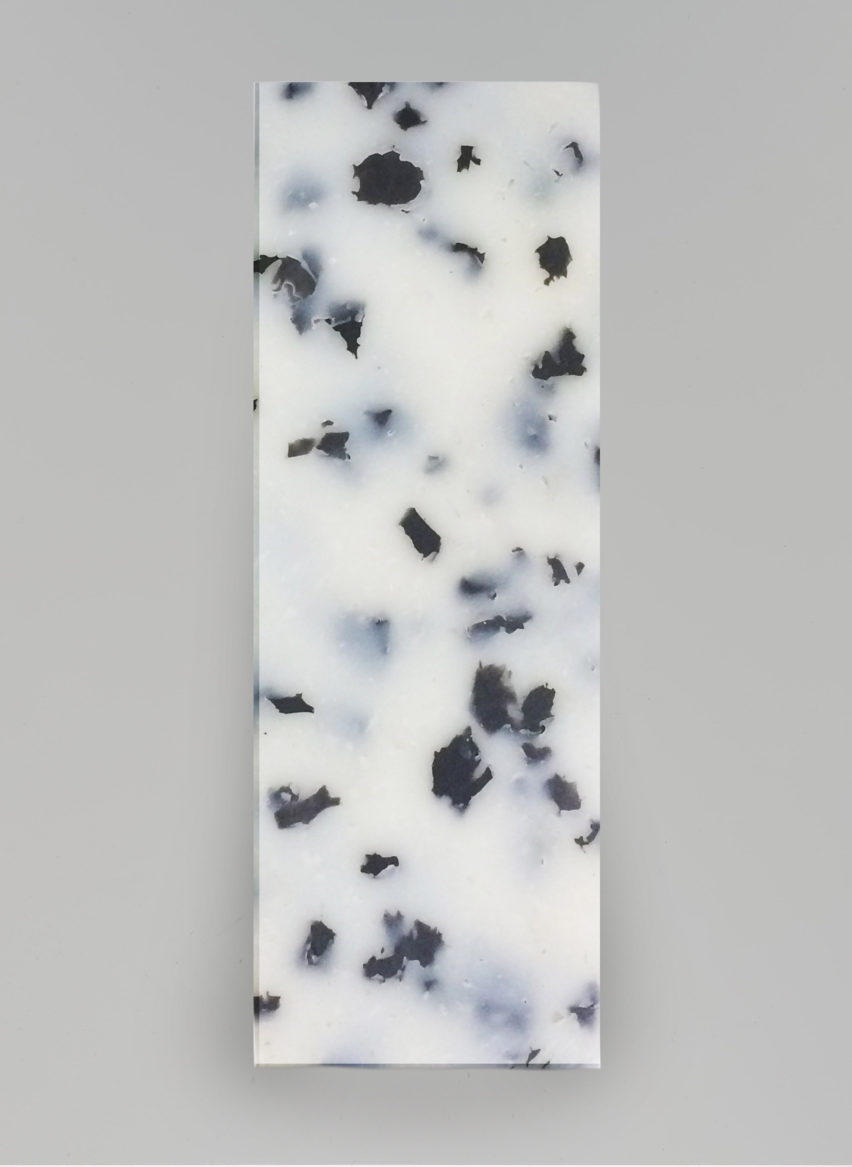
"Inspired by the rough features and patterns of marble and granite we create something that is beautiful and durable that represents the way we should perceive plastics: as the incredible and precious material it actually is," the designers told Dezeen.
"The look of our materials find their origins in the properties of the plastic waste we use, some are very rigid while molten and tend to stay more like granite or terrazzo, others become more liquid and are perfect for a marbled look," they explained.
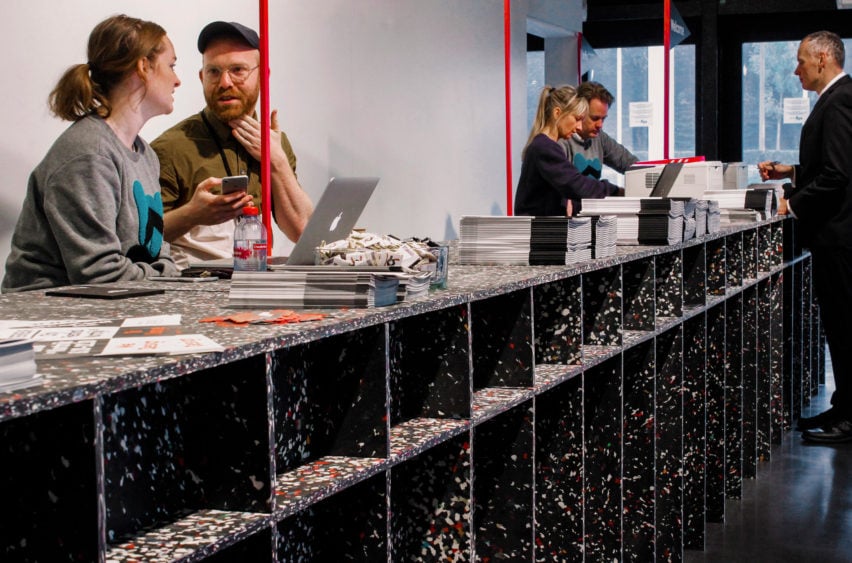
Plasticiet was recently used to create the eight-metre-long entrance desk for Biennale Interieur 2018, which took place in Kortrijk, Belgium.
The founders also created a series of abstract, furniture-like objects for the event to demonstrate potential applications of the material.
Dingemans and van Middelkoop met while studying Product Design at Willem de Kooning Academy. They launched Plasticiet in 2018, after a two-year development period.
The idea for the company began in 2016 after a field trip to Mumbai, where they saw a cottage industry emerging from the rescue of plastic waste. They began developing the product by hand, using a toaster iron to melt different pieces of recycled plastic together.
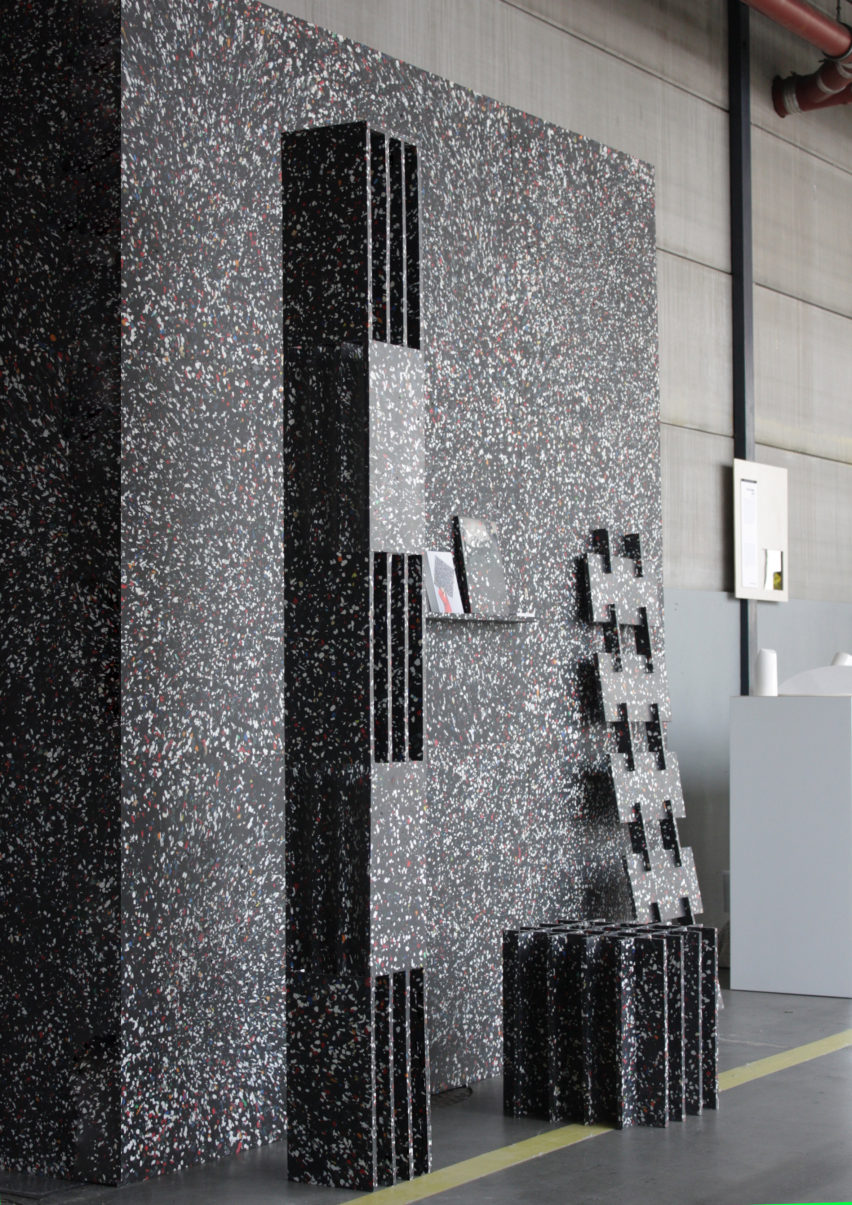
"There has been a lot of talk about plastic reuse, but [not many] projects that actually physically do it and provide a recycled material to others," said the designers.
"We would love to cooperate with a massive company such as IKEA for example, that is able to reach a lot of people and has a large offset. Recycling plastic should not be something special. We can achieve this by demonstrating it to the public."
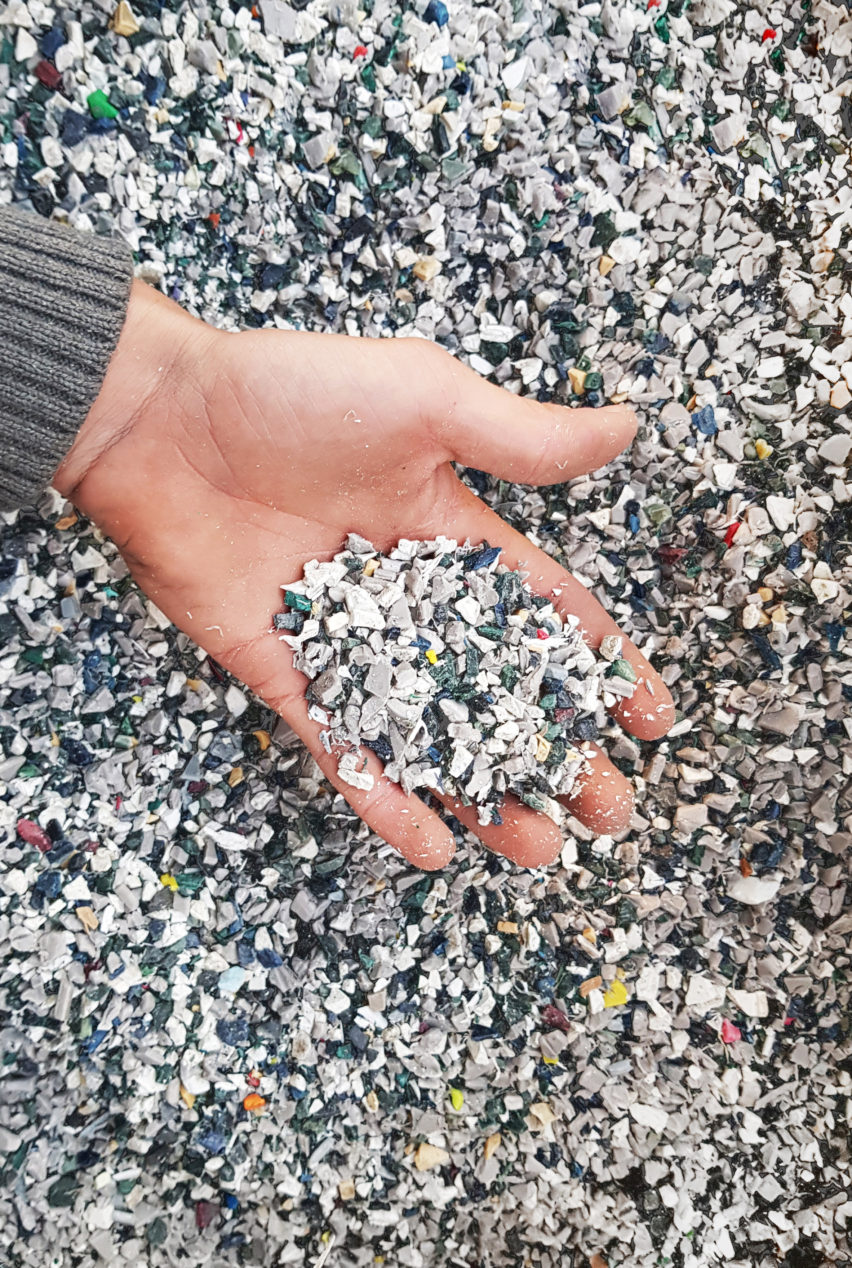
A growing number of young designers are focusing on finding new uses for waste plastic, and IKEA is among the companies that have recently pledged to move away from single-use plastics.
In February, a number of designers told Dezeen that recycled plastic "will soon be the only choice" for products.
But Istanbul Biennial curator Jan Boelen has declared the rising use of recycled plastic in design "bullshit", saying it helps perpetuate dependence on fossil-based materials and that designers should instead focus on using bioplastics made from natural materials.
Photography is by Plasticiet. Video is by Cees van Middelkoop.